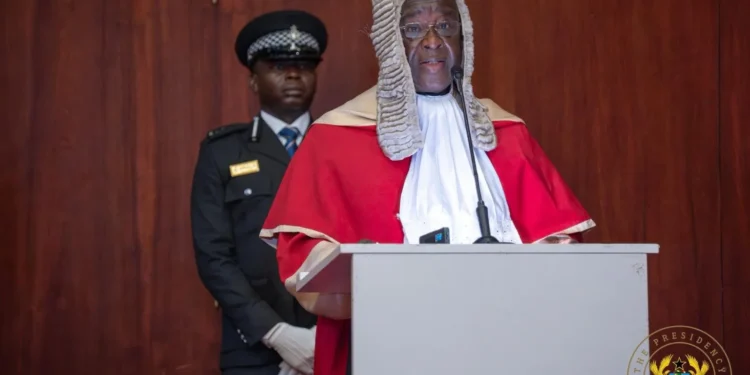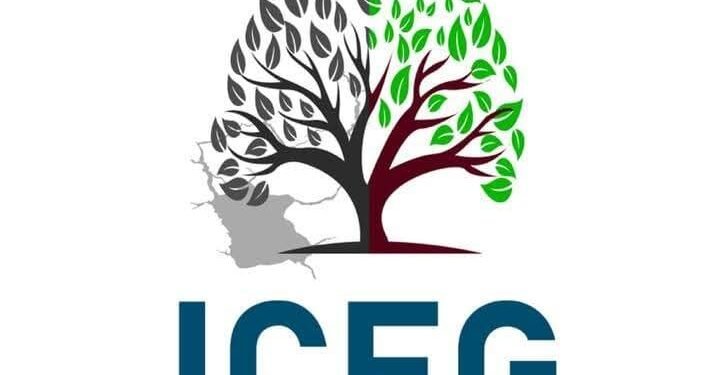The Acting Commissioner-General of the Ghana Revenue Authority (GRA), Anthony Kwasi Sarpong, has announced the increase of the Value Added Tax (VAT) threshold to GHȻ 750,000 to support small and micro enterprises.
The decision of the government to move the VAT threshold from GHȻ 200,000 was in line with the government’s continuous assurance to support the growth of Ghanaian small businesses.
Speaking at the KPMG–UNDP 2026 Post-Budget Forum titled ‘Resetting for Growth, Jobs and Economic Transformation,’ in Accra, Mr. Sarpong made this announcement as part of a broader reform in the country’s tax administration.
“Part of the reforms is both a structural process and technology-driven. So, the first thing the government has proposed is to lift the threshold of VAT registration from GHS200,000 to GHS750,000 in respect of goods.”
Anthony Kwasi Sarpong, Acting Commissioner-General of GRA
According to him, the relief on goods will complement the efforts of traders and eliminate the struggle of small businesses when it comes to tax compliance.
“This actually takes away the burden from small, micro, and individual enterprises that struggle to keep the books as far as VAT is concerned.”
Anthony Kwasi Sarpong, Acting Commissioner-General of GRA
This space of relief is supposed to cover the growing stage of small and micro businesses and soften their initial operations until they move above the new threshold before they start complying with VAT tax.

He added that small and micro traders should use this opportunity to focus on best practices and the growth of their businesses until the time GRA comes after them for the VAT.
“We are lifting this away, and we are saying focus on your business, deliver service. When you go above the threshold, we will come and collect our taxes, but until you get there, just focus on your business.
“So, this is a big relief that is going to support our [Ghana’s] micro enterprises to focus on their businesses and do what they do best.”
Anthony Kwasi Sarpong, Acting Commissioner-General of GRA
Other Benefits of a Reduced VAT Threshold
Increasing the VAT threshold implies that small and micro businesses have a turnover, and can earn more revenue at the beginning of the business, before they are legally required to register for and be charged the VAT.
This policy change intends to support growing businesses in reducing administrative costs, saving time, and resources. Ghanaian small businesses under the new threshold can avoid complex compliance obligations associated with the VAT, including digital record keeping, VAT-compliant invoice issuance, and regular VAT return filing.
The non-VAT-registered businesses are free from using part of their small revenue to pay taxes. This gives more capital to owners and allows for plowing back.
There is also enhanced growth and competitiveness due to the absence of tax. More capital through reinvestment positions the businesses in a confident and equipped position to expand quickly and compete with counterparts.
This policy also encourages micro and informal businesses to formalize their operations without being immediately overwhelmed by complex tax requirements. It offers a slow transition from formation through growth to contribution to national development.
Other Taxes to be Abolished in the 2026 Budget
Again, Mr. Sarpong’s announcement is to reinforce the government’s broader chronicle under the 2026 Budget, presented by the Finance Minister, Dr. Cassiel Ato Forson, to Parliament as part of the government’s major tax reforms aimed at creating a conducive business environment.

Other tax reforms were announced by Dr. Ato Forson while reading the 2026 Budget. They include the abolition of the COVID-19 Health Recovery Levy, a reduction of the effective VAT rate from 21.9% to 20%, and the upward adjustment of the VAT threshold — measures expected to return an estimated GHȻ 5.7 billion to businesses and households.
Dr. Cassiel Ato Forson also mentioned steps to streamline tax administration via digital VAT monitoring systems, fiscal electronic devices, and a VAT reward scheme, while committing to a comprehensive review of Ghana’s tax laws to align them with global standards.
According to Dr. Forson, the government believes that these reforms will simplify compliance, close revenue leakages, and support private-sector expansion, while anchoring the broader national agenda of growth, job creation, and economic transformation.
READ ALSO: ₵2.3b MahamaCares Allocation, Sign of Commitment to Affordable NCDs Treatment – Policy Adviser























